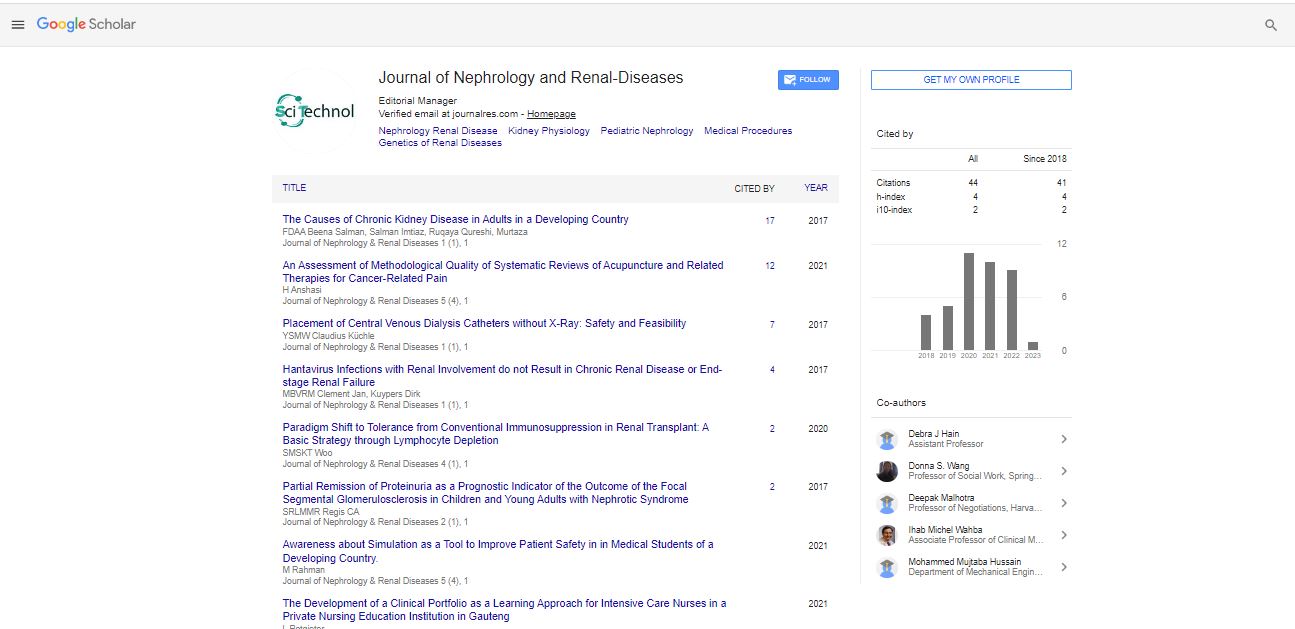Telomerase activates a latent stem cell population that drives regeneration of podocytes in the adult mouse kidney
Marina Shkreli
Institute for Research on Cancer and Aging, France
: J Nephrol Ren Dis
Abstract
While it is likely that stem/progenitor cells contribute to podocyte turnover, the mechanisms by which podocytes are maintained during life remain obscure. The studies led so far on podocyte regeneration have been performed in several disease and injury models. Although partial podocyte replenishment is observed in those models, podocyte regenerative potential does not match podocyte loss in these contexts, and kidney function recovery remains therefore limited in those models. To date, the only model described in which extensive, fast and efficient podocyte regeneration is observed in the adult organism consists of a telomerase-enforced mouse model1. In this study, we used this enforced-regeneration system combined with lineage tracing strategies in order to decipher the cellular mechanism that supports efficient podocyte renewal in the adult mouse kidney. We show that upon telomerase stimulation, renewed podocytes are generated by synergetic activation of stem cells and podocyte duplication, and we found that endogenous telomerase is reactivated in physiologic regeneration following injury. Importantly, using an unbiased stochastic multicolor tracing approach, we further provide evidence for expansion of stem cells located in specific compartment within the adult kidney. Altogether, those data reveal an important plasticity of stem/ progenitor and differentiated cells within the adult mammalian kidney that yields efficient and fast renewal of podocytes. Moreover, those data significantly strengthen the knowledge regarding the potent effects of telomerase on adult stem cells.
Biography
Marina Shkreli after completing her PhD training in December 2006 in the University of Tours (France) where she studied telomerase functions in virus-induced tumorigenesis, Marina Shkreli joined Stanford University School of Medicine as a postdoctoral fellow in January 2007 (California, USA). During her postdoctoral training, she used in vivo genetic approaches to study non- canonical functions of telomerase. Marina Shkreli have been awarded an ATIP-AVENIR grant by the CNRS-INSERM that allowed her to setup and lead her research team within the Institute for Research on Cancer and Aging, Nice (IRCAN) since January 2013.
 Spanish
Spanish  Chinese
Chinese  Russian
Russian  German
German  French
French  Japanese
Japanese  Portuguese
Portuguese  Hindi
Hindi 
